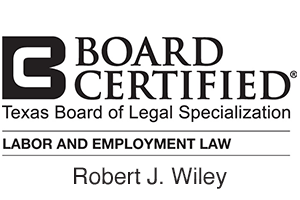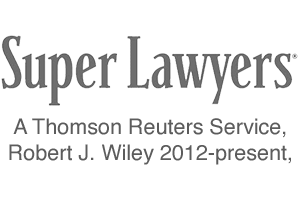in Austin, Texas
SEC Whistleblowing
Austin Lawyers Experienced in Whistleblower Litigation
The SEC whistleblower programs were created to give incentives to people to encourage them to provide information about securities laws violations and to protect them from retaliation because they gave information. If you were terminated, demoted, harassed, suspended, threatened, or otherwise subjected to mistreatment by your employer because you reported a violation to a supervisor or to the SEC, you should retain a knowledgeable Austin SEC whistleblower lawyer. At Austin Employment Lawyers, P.C., our attorneys may be able to help you if you face the possibility of retaliation by your employer or have already suffered from retaliation.
The Process of SEC Whistleblowing
The Securities and Exchange Commission (SEC) is supposed to pay awards to certain whistleblowers who give it original information about federal securities laws violations under Section 21F of the Securities Exchange Act of 1934. This is known as the SEC Whistleblower Program.
Original information is information that is derived from your own independent knowledge or analysis, is not known to the SEC from some other source unless you are the original source of the information, and is not exclusively based on an allegation made in a governmental investigation, audit, hearing, or report. Original information can include information about violations of the federal securities laws, as well as violations of self-regulatory organizations like FINRA and violations of the Foreign Corrupt Practices Act. Some common violations include false and misleading financial statements, offering fraud, insider trading, market manipulation, and unregistered offerings.
As a whistleblower who provides qualifying original information, you can receive between 10% and 30% of the monetary sanctions collected by authorities such as the SEC. Under Section 922, anyone (including an employee) who reports a securities violation to the SEC that results in an enforcement action with sanctions collected that are more than $1 million can receive this percentage of the sanction. There is no requirement that you report a violation internally, but if you do, you need to report the information to the SEC within 120 days to be eligible for the monetary award, and the award may be higher if you did report violations internally. An SEC whistleblower attorney can advise Austin employees on the nuances of this situation.
You would be justified in worrying that your employment will be terminated or that other adverse employment consequences will follow if you report internally or if your boss discovers that you made a report to the SEC. In the Fifth Circuit, Dodd-Frank expressly protects you from retaliation based on your whistleblowing report to the SEC if you are an employee of a domestic, publicly traded company or its subsidiary. This protection applies to employees of publicly traded companies with more than $10 million in assets and more than 500 shareholders. Currently in the Fifth Circuit, Dodd-Frank does not provide any whistleblower protection for employees who only report wrongdoing internally.
If you are subjected to retaliation, there are two main avenues for judicial relief. You can bring a private lawsuit in federal district court within three years of the retaliatory action. Your employer will be required to reinstate you in the prior position or a similar one if it is found liable, and it may also need to pay you double back pay and other compensation for costs that you incurred during litigation. Also, the SEC has the power to bring its own retaliation lawsuit against the company.
Sometimes companies do not retaliate right away. Other times, they terminate an employee but promise to pay severance. In that case, your employer may require you to sign a severance agreement including a written release of your claims and a confidentiality clause stating that you will not disclose confidential information about the business that was gained on the job or make any disparaging comments about it. It may include an agreement to waive a whistleblower award or provide that the award will offset your severance. You should consult an attorney before signing such an agreement.
Retain an SEC Whistleblower Lawyer in Austin or Surrounding Cities
If you are concerned about retaliation for SEC whistleblowing, you should consult an employment attorney who can advise you. Your employer is likely represented by legal counsel, and you should be represented as well. The Austin SEC whistleblower attorneys at Austin Employment Lawyers, P.C. represent people in cities such as Austin, Georgetown, Round Rock, Cedar Park, Pflugerville, Leander, Del Valle, Kyle, San Marcos, San Antonio, New Braunfels, and Fredericksburg. Call us at (512) 271-5527 or use our online form to reach out to us. We also can assist people who need a qui tam attorney for whistleblowing involving government fraud.







